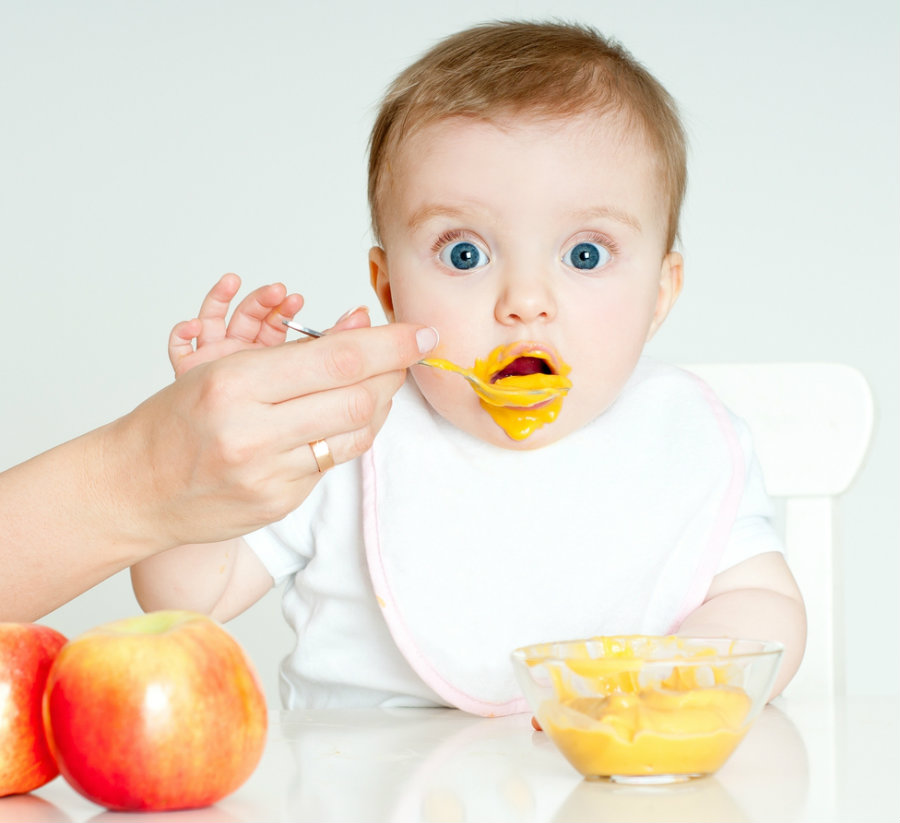Experts warn that the development and safety of babies might be threatened because of the presence of lead in 20 percent of baby food. Lead is commonly found in apple and grape juices, root vegetables and certain cookies.
The findings were highlighted by the Environmental Defense Fund that analyzed 11 years of federal data. Lead can undermine the cognitive development of infants, as well, it can drive to attention issues and problems in the immune and cardiovascular systems. Therefore, it is critical for people to know exactly what they are feeding their kids.

“Lead can have a number of effects on children and it’s especially harmful during critical windows of development,” said Dr. Aparna Bole, a pediatrician at University Hospitals Rainbow Babies and Children’s Hospital in Cleveland, who was not involved with the report. “The largest burden that we often think about is neurocognitive that can occur even at low levels of lead exposure.”
Children consume more than the maximum recommended daily intake of lead
According to the research, 20 percent of the baby food products analyzed had lead. They analyzed 22164 samples, which were not classified by brand. The Environmental Defense food has drawn attention to how dangerous lead can be for people; however, they focused on baby food, given the fragile immune system of toddlers. Though the lead levels of these products are not that high, they can certainly be harmful.
On the other hand, according to a report released by the Environmental Protection Agency (EPA) earlier this year at least 5 percent of kids ingested more than the recommended daily intake level of lead, which is 6 milligrams. This maximum was adopted by the Food and Drug Administration in 1993.
Lead exposure in kids is mostly due to food
Lead is commonly found in contaminated water, in teething biscuits, some fruit juices, and some vegetables such as carrots and potatoes. Tom Neltner, who is the Environmental Defense Fund’s chemicals policy director focuses on lead exposure and the ways to reduce it. He said that almost 70 percent of kids are exposed to lead due to the level of this metal in foods. Therefore, they considered it was pertinent to analyze the data of the FDA’s Total Diet Study for specific sources of exposure to lead for babies and kids.

According to the findings, a lot of products for babies have more lead than the regular versions. For example, 68 percent of regular samples of grape juice had lead, while 89 percent of the samples of grape juice for babies contained lead. 55 percent of apple juices for babies had lead, while the regular apple juices had 25 percent chances of being toxic due to lead. Carrots for babies, on the other hand, had three more chances of having lead than the regular versions.
Neltner said that though the soil has definitely something to do with this, there are other factors. He believes it also has to do with the processing companies adopt. The Environmental Defense Fund will continue to investigate the possible causes of lead contamination.
“The FDA is continuing to work with industry to further limit the amount of lead in foods to the greatest extent feasible, especially in foods frequently consumed by children,” read an agency statement. “The agency is in the process of reevaluating the analytical methods it uses for determining when it should take action with respect to measured levels of lead in particular foods, including those consumed by infants and toddlers.”
Parent should contact pediatricians to prevent lead contamination
It is critical for parents to avoid those particular foods that might threaten the welfare of their children. The Environmental Defense Fund hasn’t established a list of foods or brands that should be prohibited to avoid lead contamination. However, they do recommend people to get advice from their pediatrician about this issue.

According to Dr. Bole, she doesn’t want parents to restrict their kid from eating vegetables because their benefits are more evident than their risks. However, she does recommend parents to cut off fruit juices from their kids’ diet, not just because of possible lead exposure but also due to nutritional reasons. She also said that the most common sources of lead exposure, in American communities at least, are paint and soil.
“Avoiding all sources of exposure to lead poisoning is incredibly important … but the last thing I would want is for a parent to restrict their child’s diet or limit their intake of healthy food groups” said Bole.
Gerber said that they understand the concerns shown by parents and pediatricians; however, they say they can be sure that their juices and products are completely safe because they follow the lead level standards. The FDA expects all companies to include these standards in their productions.
Source: CNN
